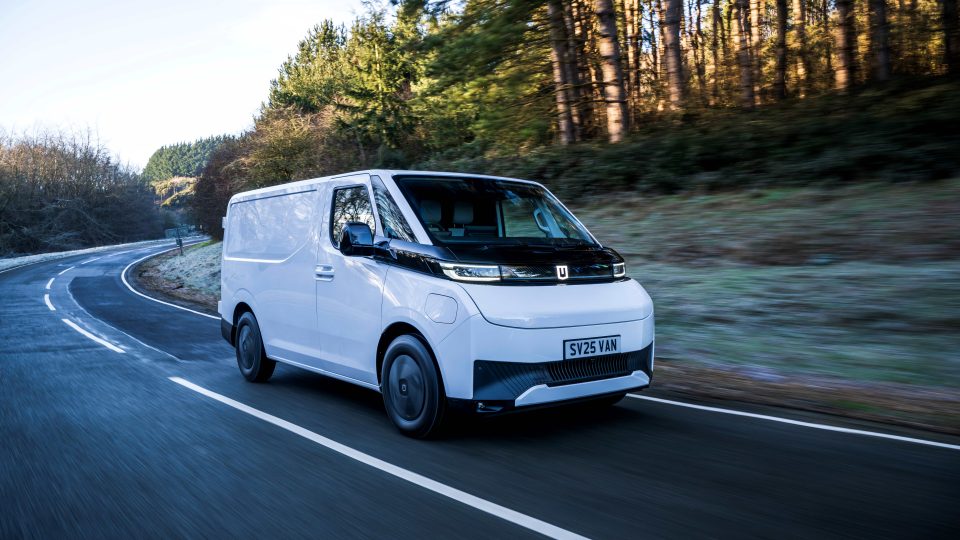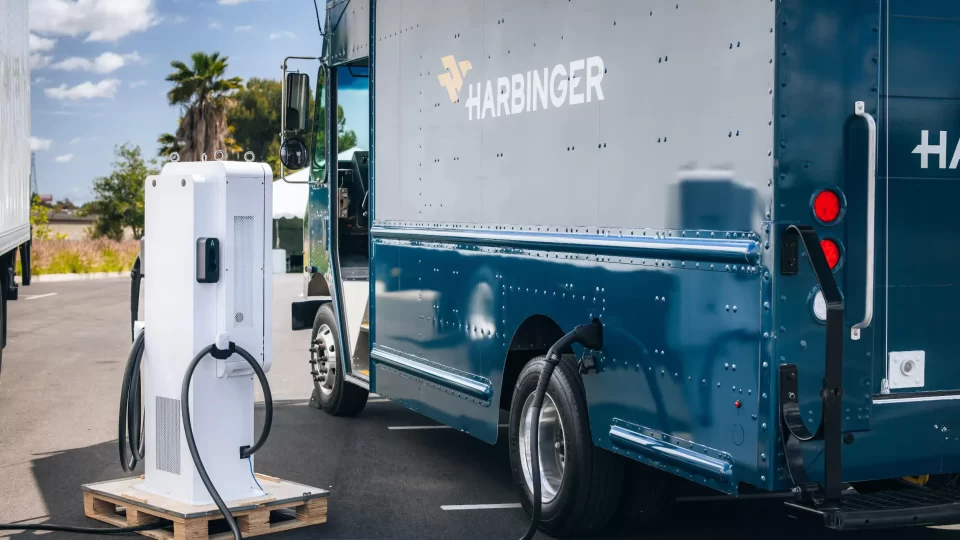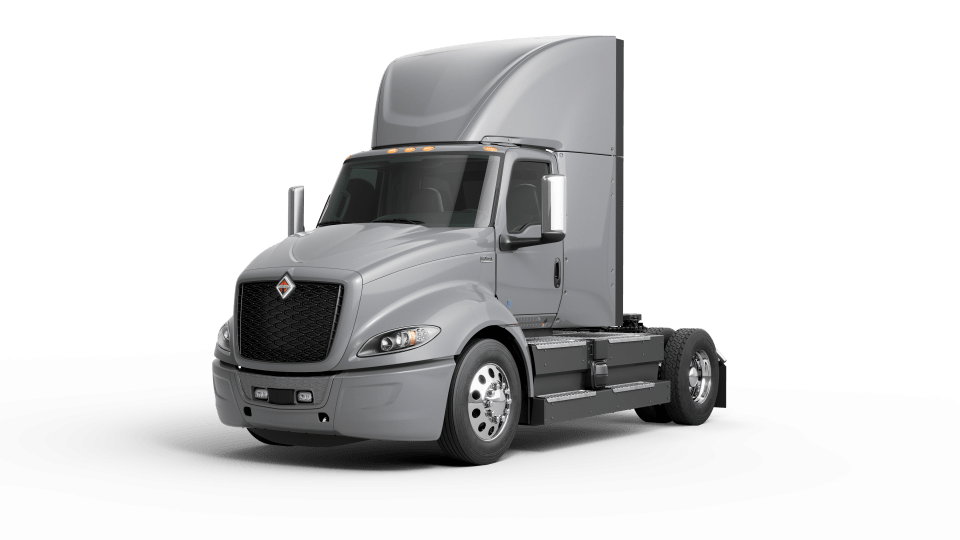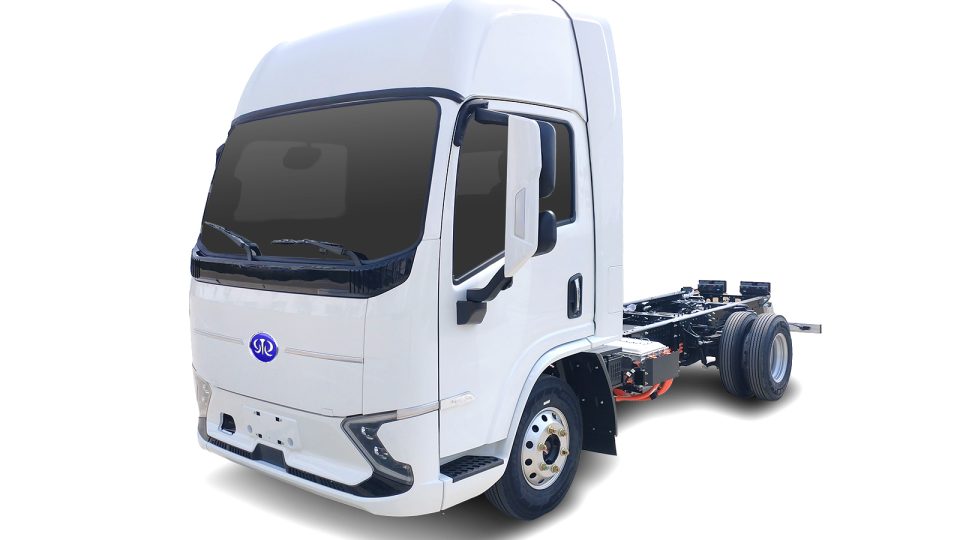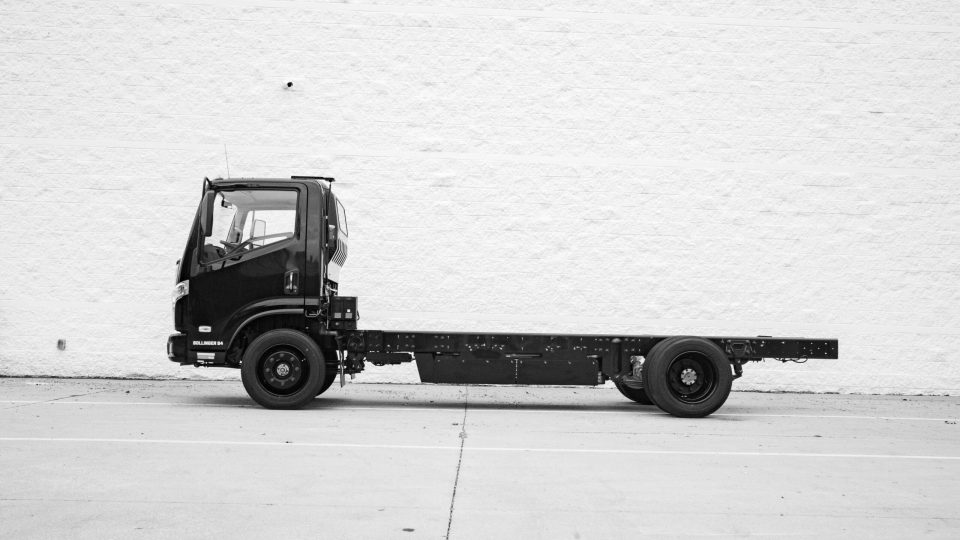Mercedes-Benz Trucks, the eEconic debuts at IFAT exhibition. Our report from Munich
Just like the eActros, the eEconic relies on the ePowertrain, the electric powertrain that consists of an electric rigid axle with two integrated electric motors and a two-speed transmission. The two liquid-cooled motors generate a continuous output of 330 kW and a peak output of 400 kW.
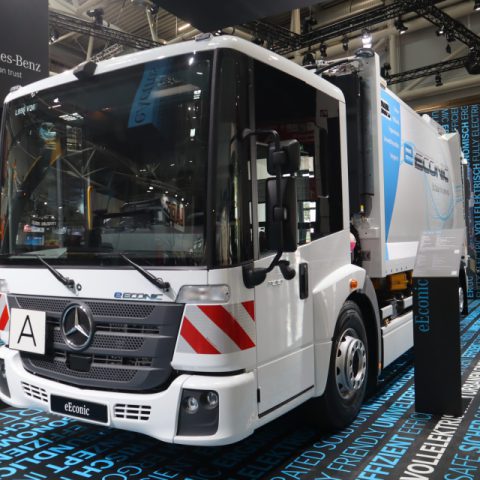
The time has come. The eEconic made its social – pardon, trade show – debut at the German exhibition dedicated to green and water treatment-related and environmental technologies. At IFAT in Munich, the eEconic was unveiled, meeting the schedule set last year when the first electric Mercedes-Benz Trucks-branded truck, namely the eActros, was launched and put on the market. And precisely with the distribution truck, the eEconic shares design philosophy and powertrain layout. With the major difference being the only option available with 3 battery packs of 112 kWh each of installed capacity (about 97 kWh of usable capacity), in contrast to the eActros, which also includes the option with 4 battery packs.
Mercedes eEconic: the test phase has closed successfully
The characteristics of the eEconic – designed specifically for waste collection and therefore to operate along a predefined route and recharge in depots at night – more than significant range perhaps require extreme optimization of vehicle efficiency. And, according to Ralf Forcher, Head of Mercedes-Benz Special Trucks, tests conducted so far with customers (specifically, the waste collection company in Frankfurt) have given comforting indications and interest in the vehicle is high.
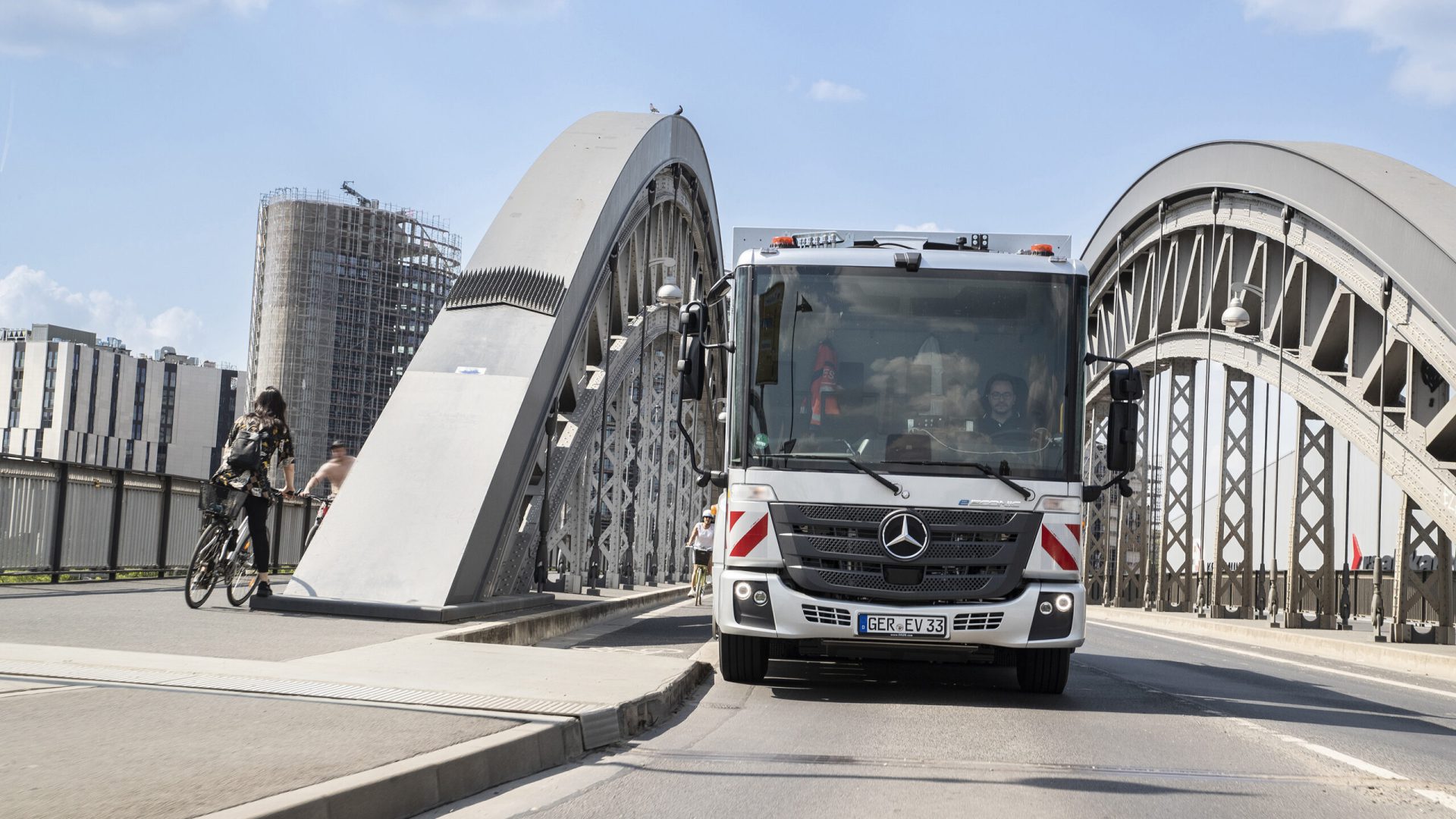
“We have done a lot of work on the driver position, who now has better visibility on the road, and on optimizing the cab, with the elimination of the engine tunnel and improved ergonomics”, Forcher said during the presentation we attended in Munich. “Series production of the eEconic will start in Wörth by the end of this year, and we will be able to deliver the first vehicles by the end of 2022. As far as TCO is concerned – he added – we still cannot say that the electric option is cost-effective compared to diesel, but we are convinced that it will be within the next three years: at Mercedes-Benz Trucks, we see the transition as a journey to be taken together with our customers“.
Battery packs and powertrain features
So, the eEconic will have a useful capacity of about 300 kWh in the three battery packs with NMC (Nickel Manganese Cobalt) cells. Range has been calculated to be about 100 kilometers on one charge, to be recalculated if the vehicle is driven with attention to fuel consumption and energy recovery under braking. The truck can be recharged up to a maximum of 160 kW: at a standard DC fast-charging station with 400 A charging current, the eEconic’s three battery packs take just over an hour to be recharged from 20 to 80 percent. Just like the eActros, the eEconic relies on the ePowertrain, the electric powertrain that consists of an electric rigid axle with two integrated electric motors and a two-speed transmission. The two liquid-cooled motors generate a continuous output of 330 kW and a peak output of 400 kW.
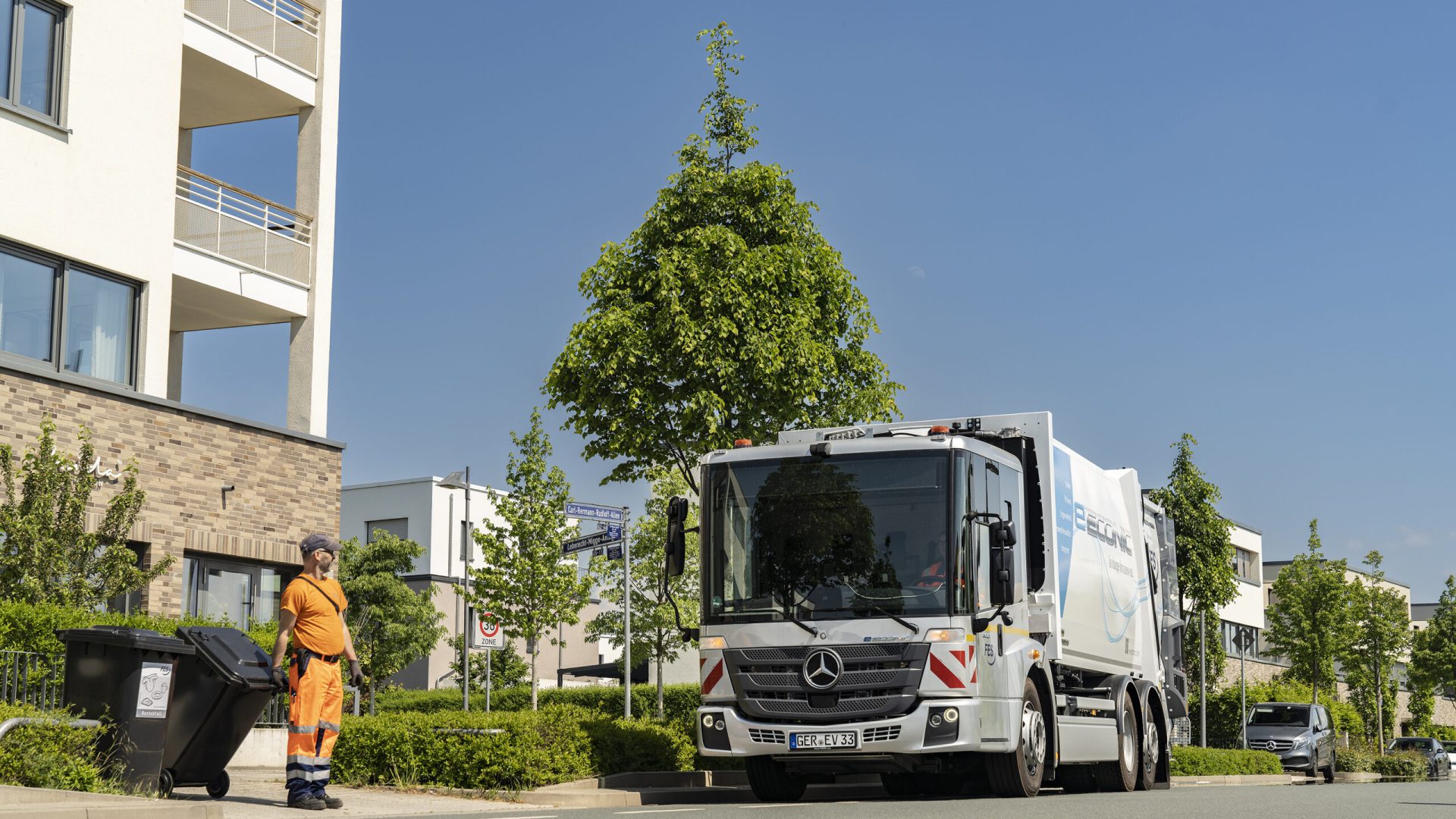
Safety equipment and fittings
Returning to the eEconic’s special features, even compared to the ICE version of the truck that is already well established in the market, the Thermocontrol coated and heated windshield prevents the glass from fogging up due to weather conditions, so that the view of road traffic remains clear and unobstructed at all times. The windshield also reduces overheating of the passenger compartment caused by sunlight. In terms of safety features, the eEconic comes standard with S1R Turn Assist System, for increased safety during right turns, and fifth-generation Active Brake Assist with pedestrian detection. In addition, in compliance with legal requirements, the standard equipment also includes an exterior acoustic system called Acoustic Vehicle Alerting System, for improved acoustic perception of the vehicle by pedestrians or cyclists.
The version admired at IFAT had a garbage collection set-up by Zöller: the Medium X4 22.5 Clean Drive. The Clean Drive set-up, specially designed for all-electric chassis with a high-voltage interface, consists of an electrified collection box (22.3 cubic meters capacity) with two internal electric motors and directly applied hydraulic pumps and converters.





